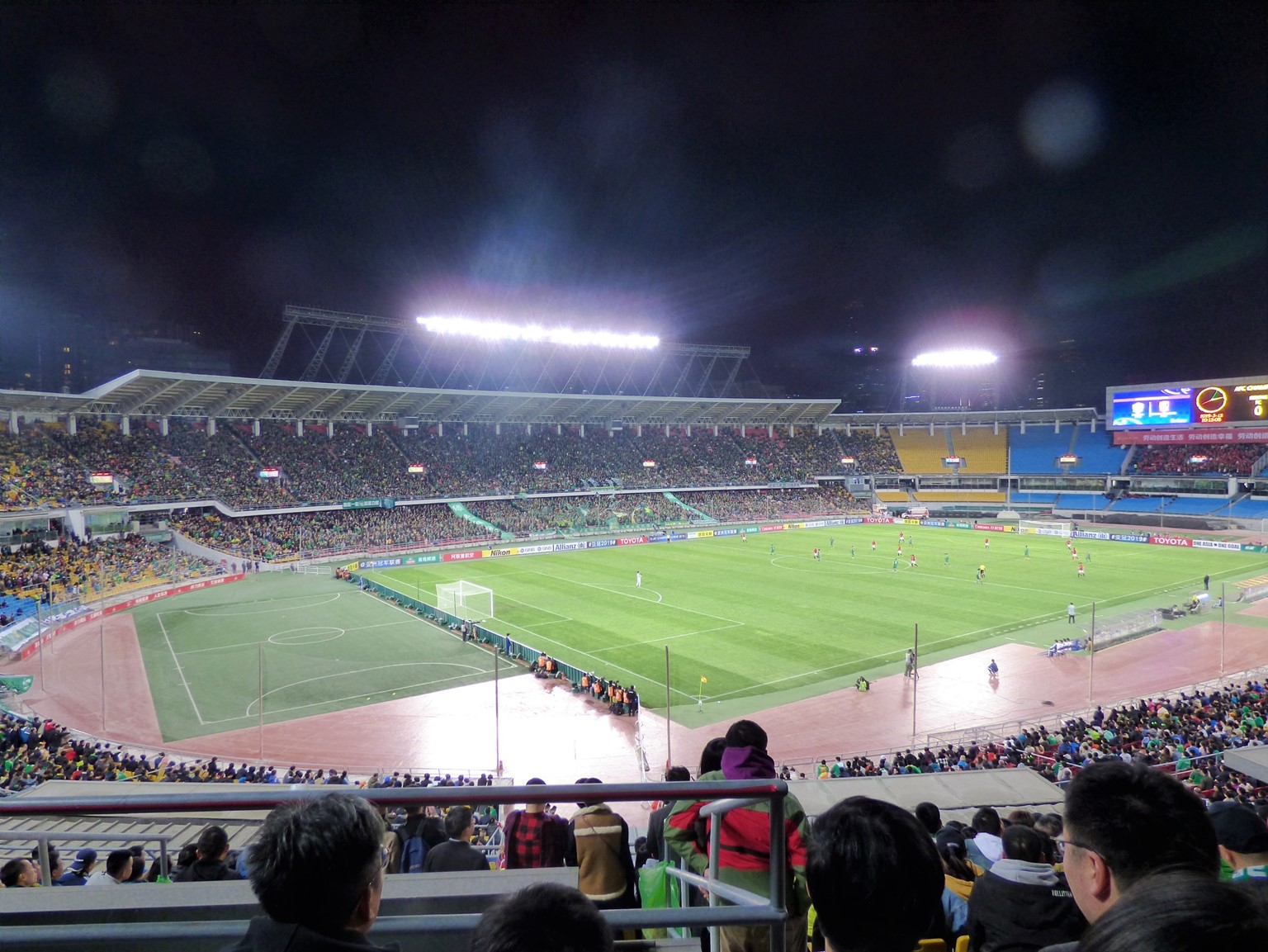Go On, Guo’an.
AFC Champions League, Group Match
Beijing Guo’an 0-0 Urawa Red Diamonds
Admission 180 Yaun (£20). Attendance 43,112. Programme. Free
This was an ultimately frustrating and disappointing evening for fans of Guo’an, with the club outperforming their visitors in almost every department* of the game but failing to score a decisive goal.
*I can’t comment much on the home goalkeeper, he was basically idle.
With this visit, the Workers’ Stadium becomes the 23rd football ground that I have visited 10 or more times, the third in this group outside England, following the Shah Alam and Merdeka stadiums in Malaysia.
My first visit here was in 2001, with Guo’an winning 4-1 against a team from Shenyang. All the others were matches during the 2004 Asian Cup, concluding with the final in which Japan beat the hosts by 3-1
Outside, the streets of Beijing have been transformed over the last 15 years, but the stadium itself shows little change. The outside may have had a coat of paint and some new businesses have been installed under the stands.
Inside, a new scoreboard has been installed, and small size artificial pitches have been added, partially overlaying the running track. Beijing does not need a running track here with the Bird’s Nest providing the prestige event stadium and many similar facilities dotted around the city.
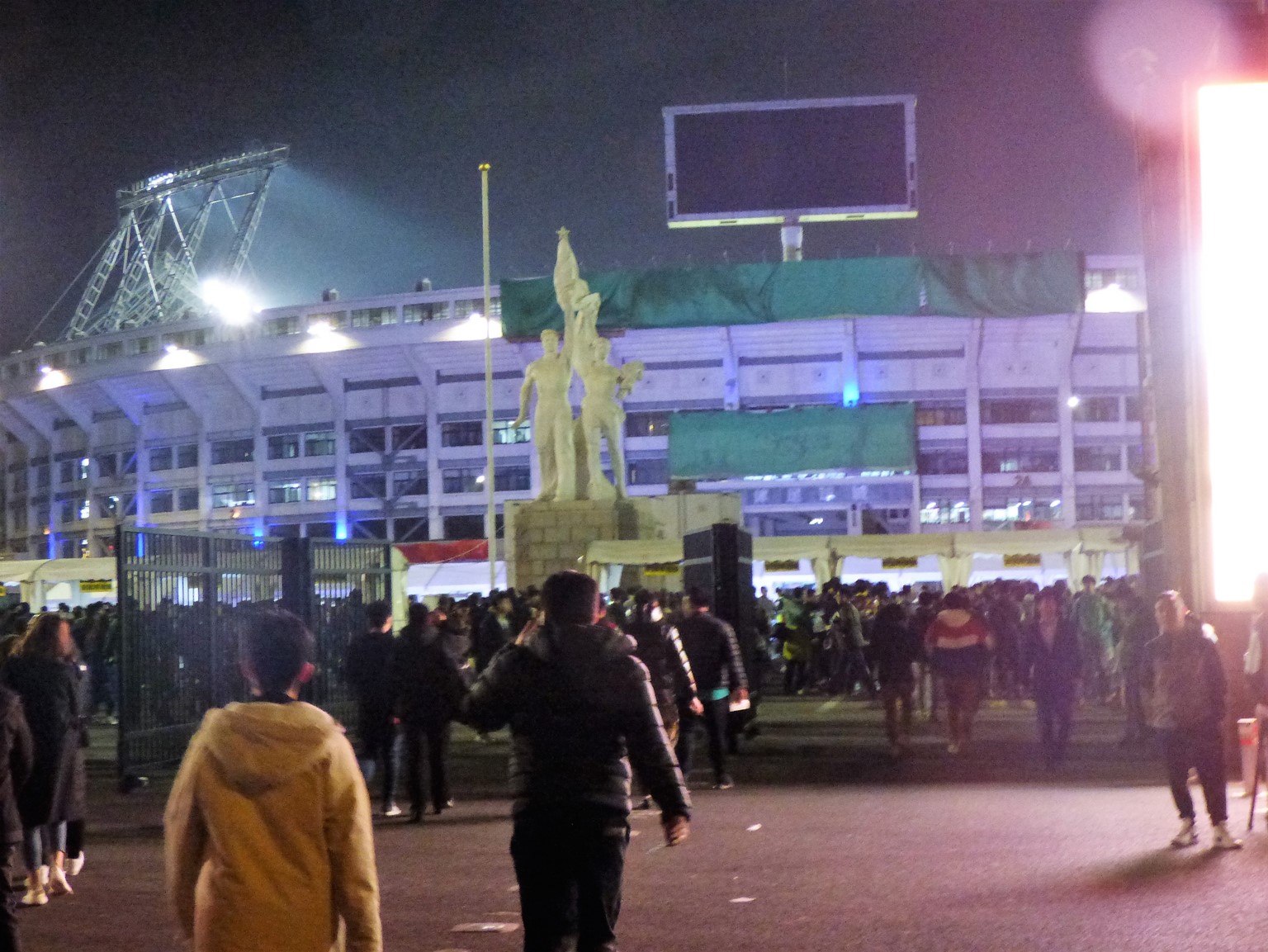
The seats are arranged in two tiers. There is a series of VIP boxes set between the tiers all around the ground, except on the East side, the lower tier is very low and has a very slight rake – added to the distance from the pitch caused by the track, the views from this area must be very poor.
Fortunately for me, my ticket was in the upper tier where I had a good view, despite being in the corner of the ground.
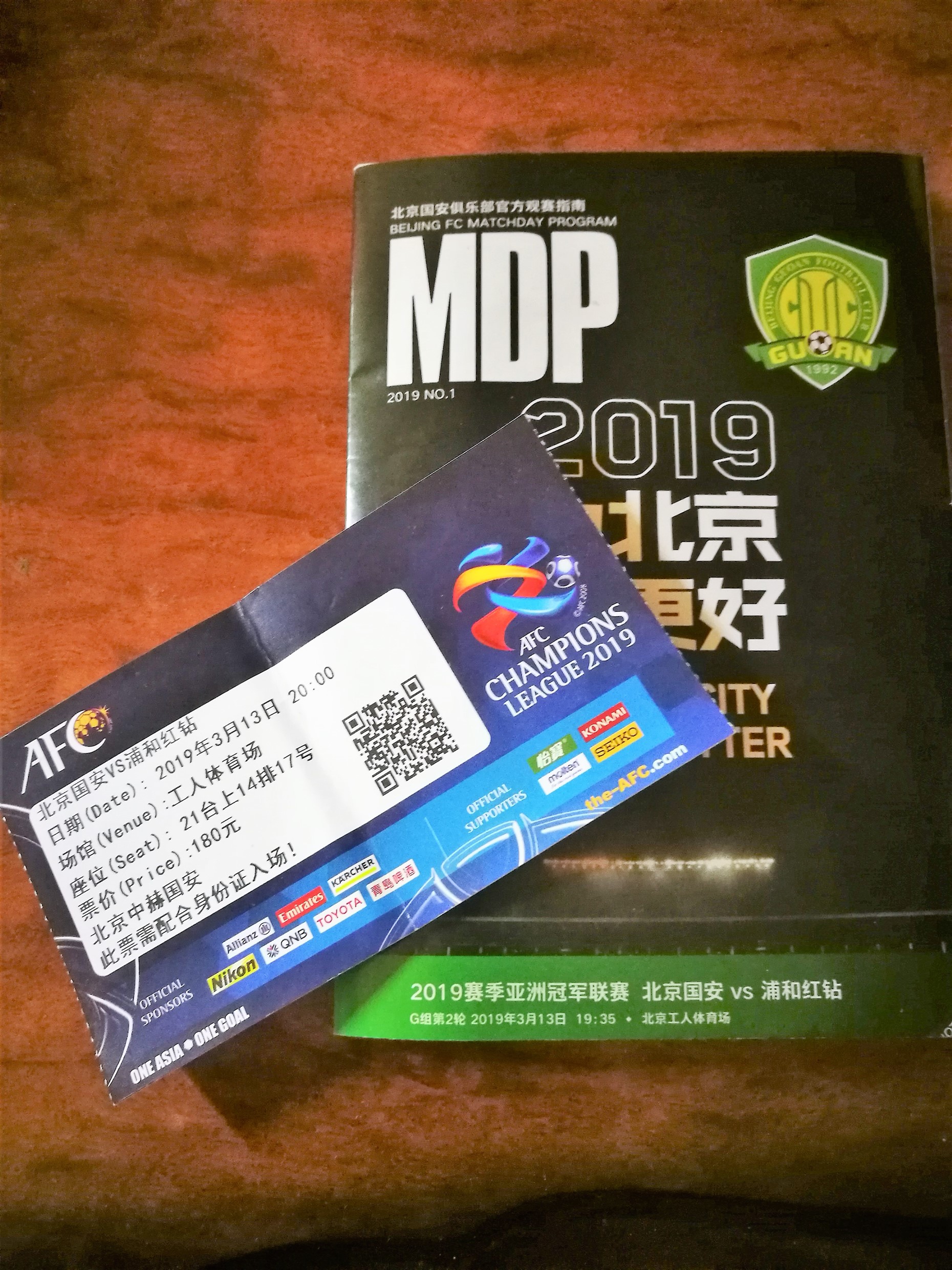
I have heard suggestions that Chinese teams do not take the international competitions seriously despite the fans clearly wanting success on these occasions. Certainly, this was the case last season in Shanghai, when Shenhua fans I spoke to were critical of the selection before the team lost at home to Suwon
On cannot level the same comments against Guo’an who made only one change from the team that had won 4-0 in Chongqing at the weekend. This was to strengthen the team
The fans are up for it as well, 43,112 is above the average league crowd from last season, possible boosted by Chinese politics which meant this was the first home game for Guo’an in any competition. Home fans were arranged around three sides of the ground, with most of the gaps being on the upper tier.
One can only assume this is price related, as in addition to having superior views, it is only the upper part of the top tier that falls under the roof in the event of rain.
The visiting fans were sitting high behind the south goal, with all surrounding areas left empty. The home fans included three different sets of singers with flags, with the ones on the Curva North (the confluence of English and Italian being read off a flag) being the most vocal and most visually stunning in uniform black. I particularly like their take on “We will Rock You” near the end. Nice to hear a bit or originality
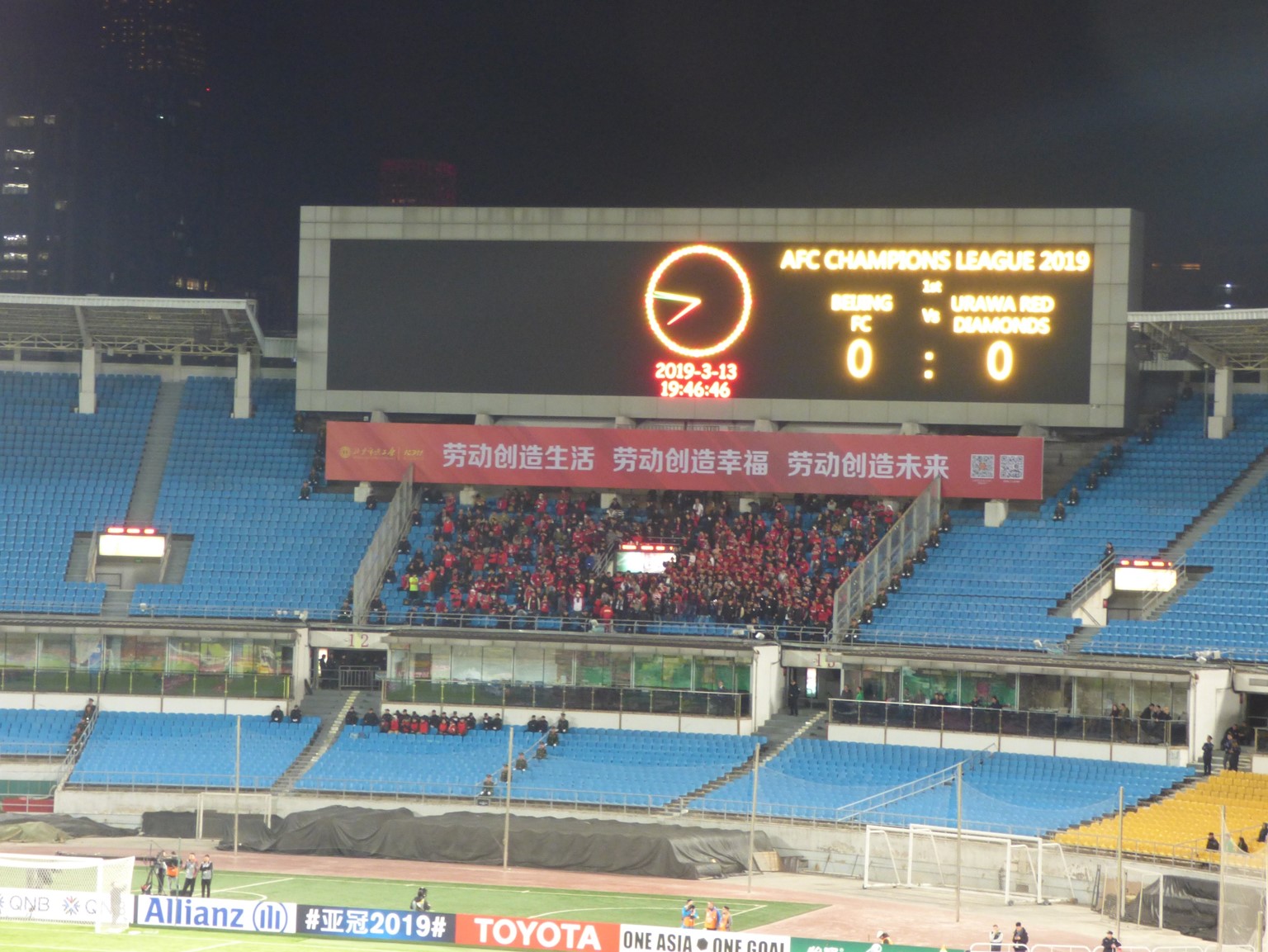
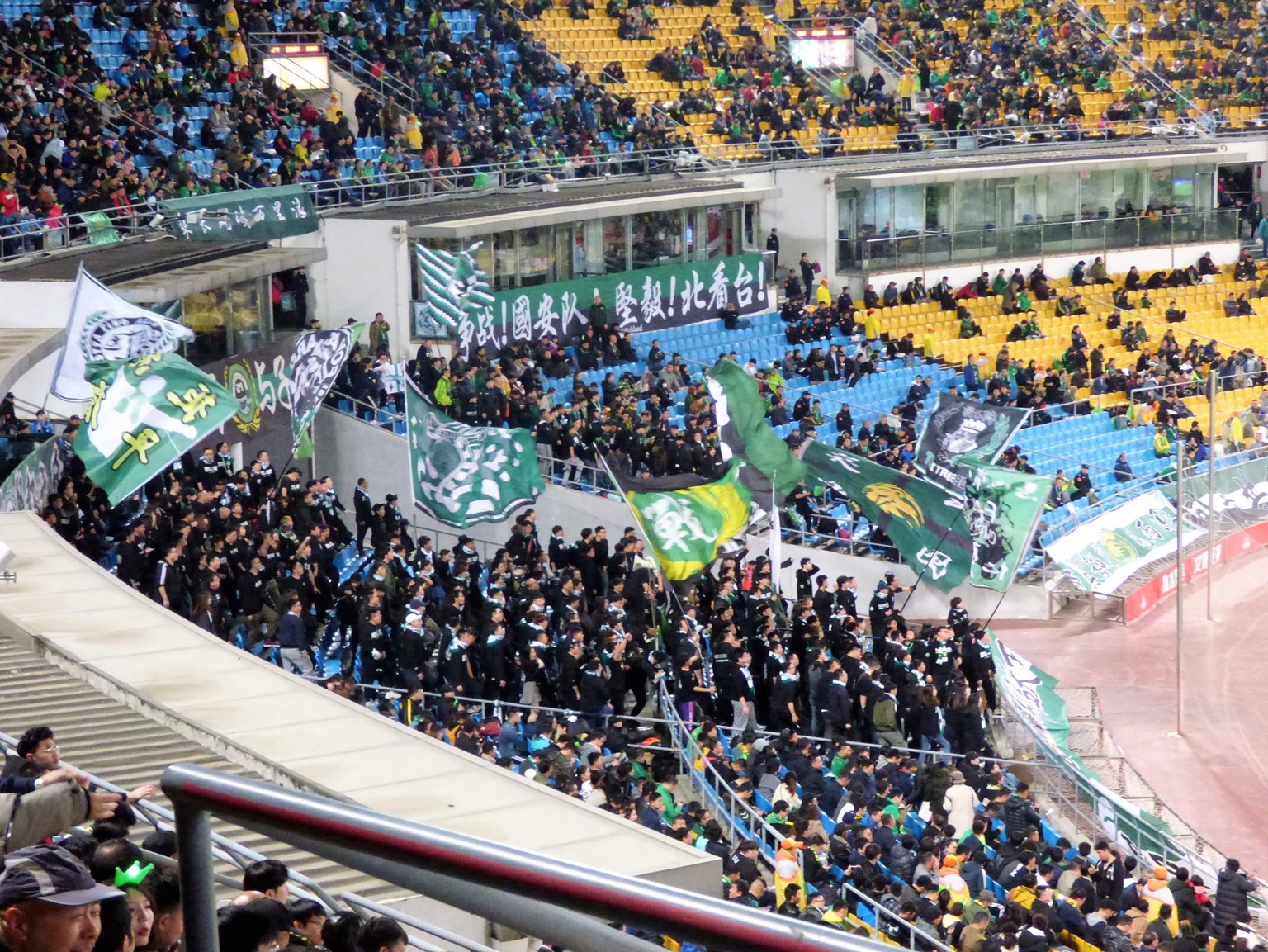
Sadly, no co-ordination between the fans. Shout and reply between different areas being a thing reserved mainly for British and German fans. The result is often a cacophony of noise when the grounds are singing different songs.
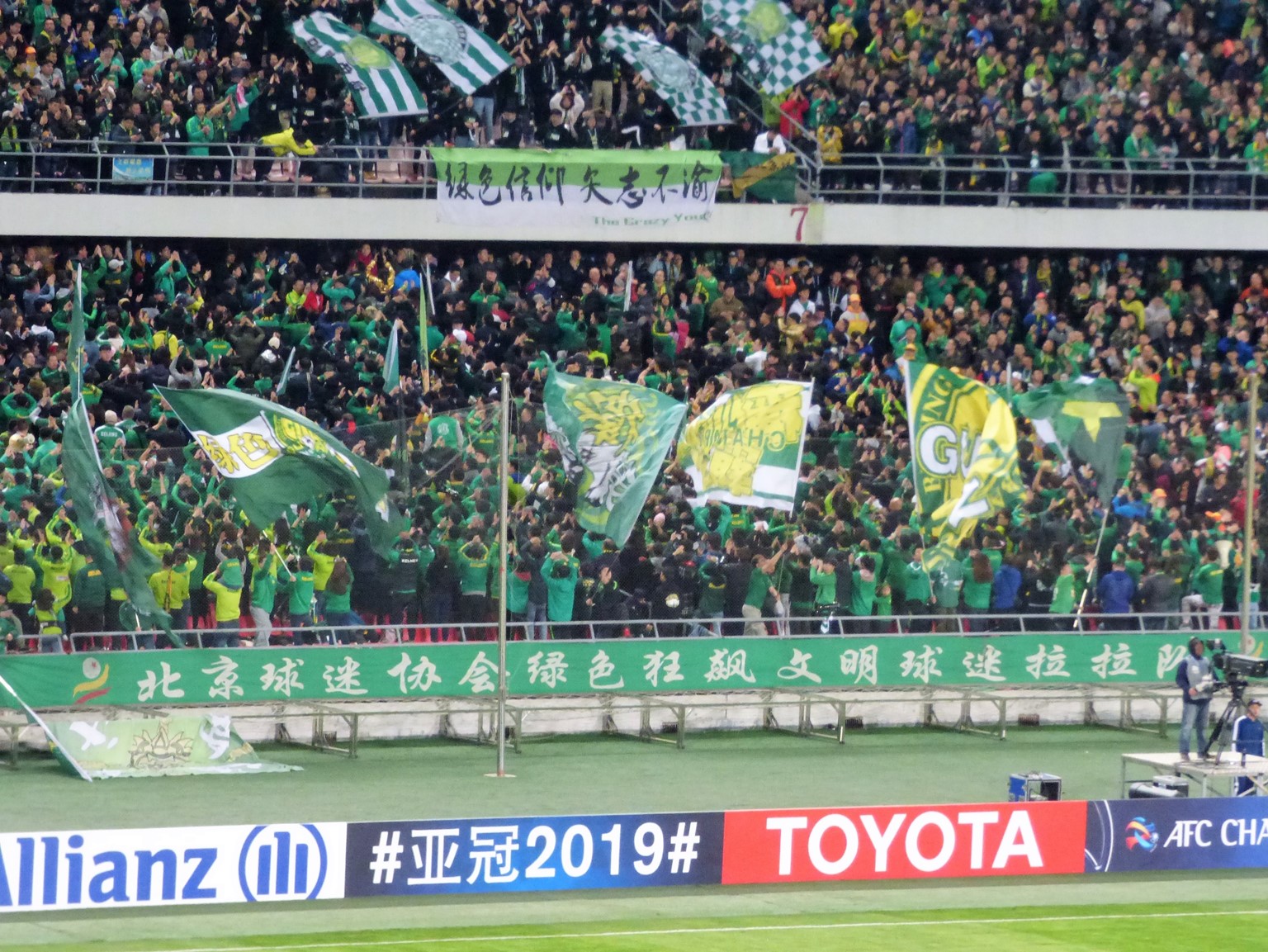 If only someone could get the groups together, and possibly teach them a little French. “Allez les Verts”
If only someone could get the groups together, and possibly teach them a little French. “Allez les Verts”
In the Champions League, four foreign players are permitted, but one must be a national of an AFC affiliated association, while in the Chinese Super League, if a team wants to field a fourth, then he must come from Macau, Hong Kong or Taiwan
As a result, Guo’an could field their South Korean defender Kim Min-Jae as well as their other foreign players, these were Jonathan Viera – a Spaniard who has spent most of his career at Las Palmas with one cap for Spain. Renato Augusto, a Brazilian signed from Corinthians, who has also experience for Bayer Leverkusen and 32 caps, including scoring for Brazil against Belgium in the 2018 World Cup. Cedric Bakambu, born in France, but now a DR Congo international. Bakambu played for Sochaux, Bursaspor and Villareal before signing for Beijing last term.
Five of the starting line-ups have appeared for China, so there were nine internationals in the starting XI. The team includes players with some European experience, Wang Gang has played in Portugal and was a member of the Beira-Mar squad that won promotion to the top division in 2010, he made 26 appearances that season, but 24 were coming off the bench. Zhang Xihie spent six months at VfL Wolfsburg without playing.
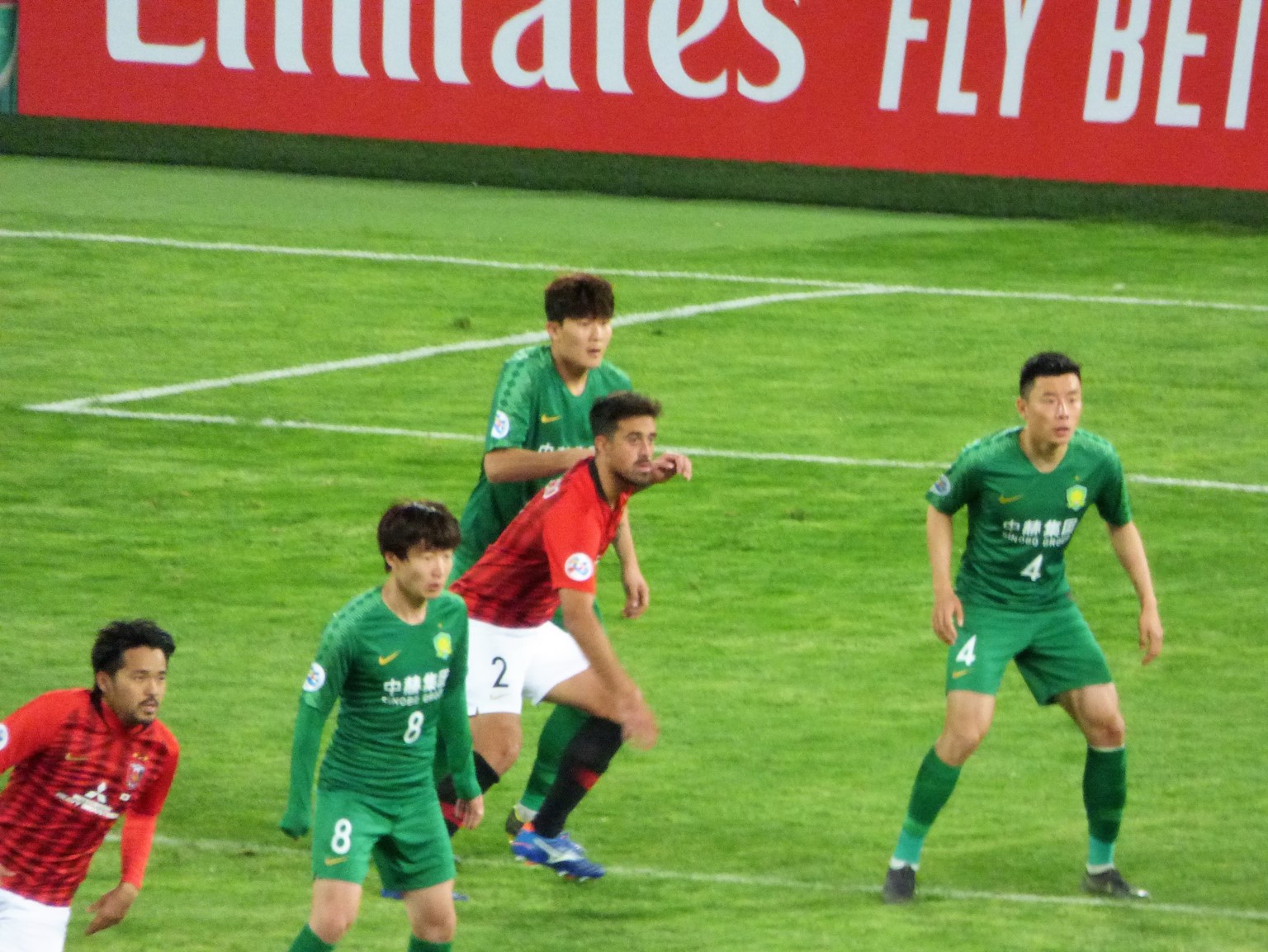
The most notable European experience is Zhang Yuning, who was signed this season from West Bromwich Albion. Zhang did not make an appearance for the midlanders, so his signing may have been partially influenced by their Chinese ownership. Prior to signing for West Brom, he had spent two seasons as Vitesse. He returns to China with Beijing, and still ticks the “under-23” box which is important as every team must have an under-23 player in the starting line-up and must play three at some time in every game, unless some of their U-23 players are training with the national squads.
Some of the U-23 players have missed both the league games this season, as they are training for the qualification matches for the next Asian U-23 tournament, (which in turn is an Olympic qualification event). The matches take place in Malaysia at the end of the month. I suspect that Zhang is not in this squad but will instead be in the full squad playing the “China Cup” at the same time.
Guo’an were set up in a 4-3-1-2 formation with Zhang Yuning and Bakambu up front and Viera tucking in behind them. On occasion, Viera moved out to play wide on the right, and the structure fell towards classic 4-4-2 with Renato on the opposite side.
Urawa started in a 3-1-4-2 formation. They included two Brazilians in the team. Mauricio Antonio was at the centre of the backs, while Ewerton was the player shielding in front of the back three. Both have come from Portuguese football and had played together for Portimonense. Ewerton is currently on Porto’s books and is in Japan on loan. The Red Diamonds third foreigner was Australian international Andrew Nabbout. Nabbout was a member of the Australian World Cup squad, and apart from a short spell in Malaysia had spent his career in the Australian Leagues.
Urawa had 6 Japanese Internationals on show with two of the Makino and Nagasawa having a little experience with Koln.
Beijing dominated the first period, and certainly should have built up a comfortable lead before the break. Unfortunately, Zhang Yuning and Cedric Bakambu both turned out to be extremely profligate in front of the goal, with the plaudits going to the Congolese player for doing the wrong thing in the right place most frequently.
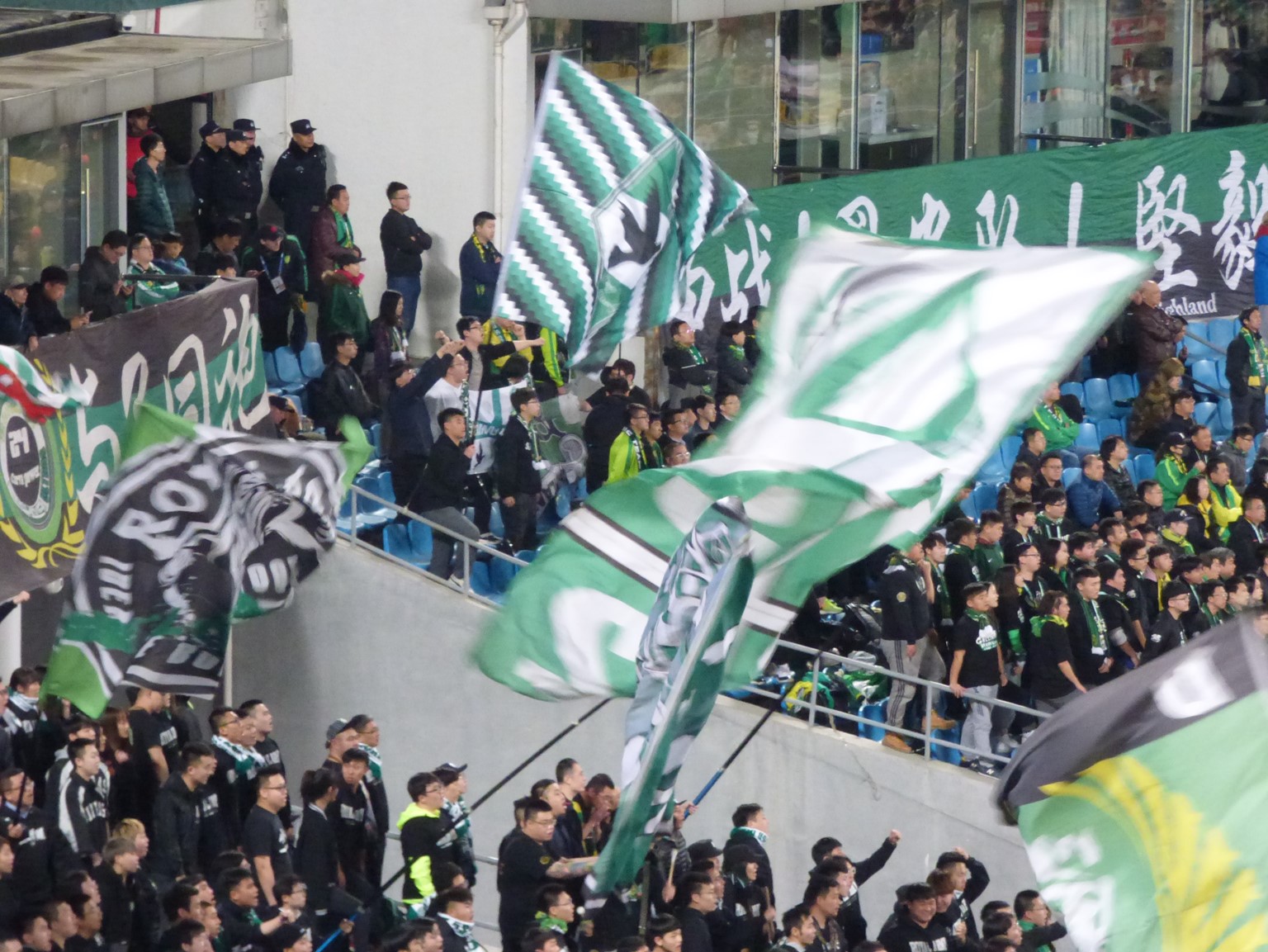
At this stage, Viera was looking to be the player who was holding the moves together, while the midfield pair of Zhang Xizhi and Piao Cheng were both involved and creative. The back four looked solid, but had little work to do to counteract the lack of attacking flair.
Frequently, the Red Diamonds back line appeared to be torn apart and Guo’an had the ability to threaten both from wide balls and direct hits to the forwards.
There was only one period where there was a serious threat from the Chinese visitors. In a short spell early in the second half, Nabbout made several runs down the right side of the field, but support was slow to come forward and all come to nought.
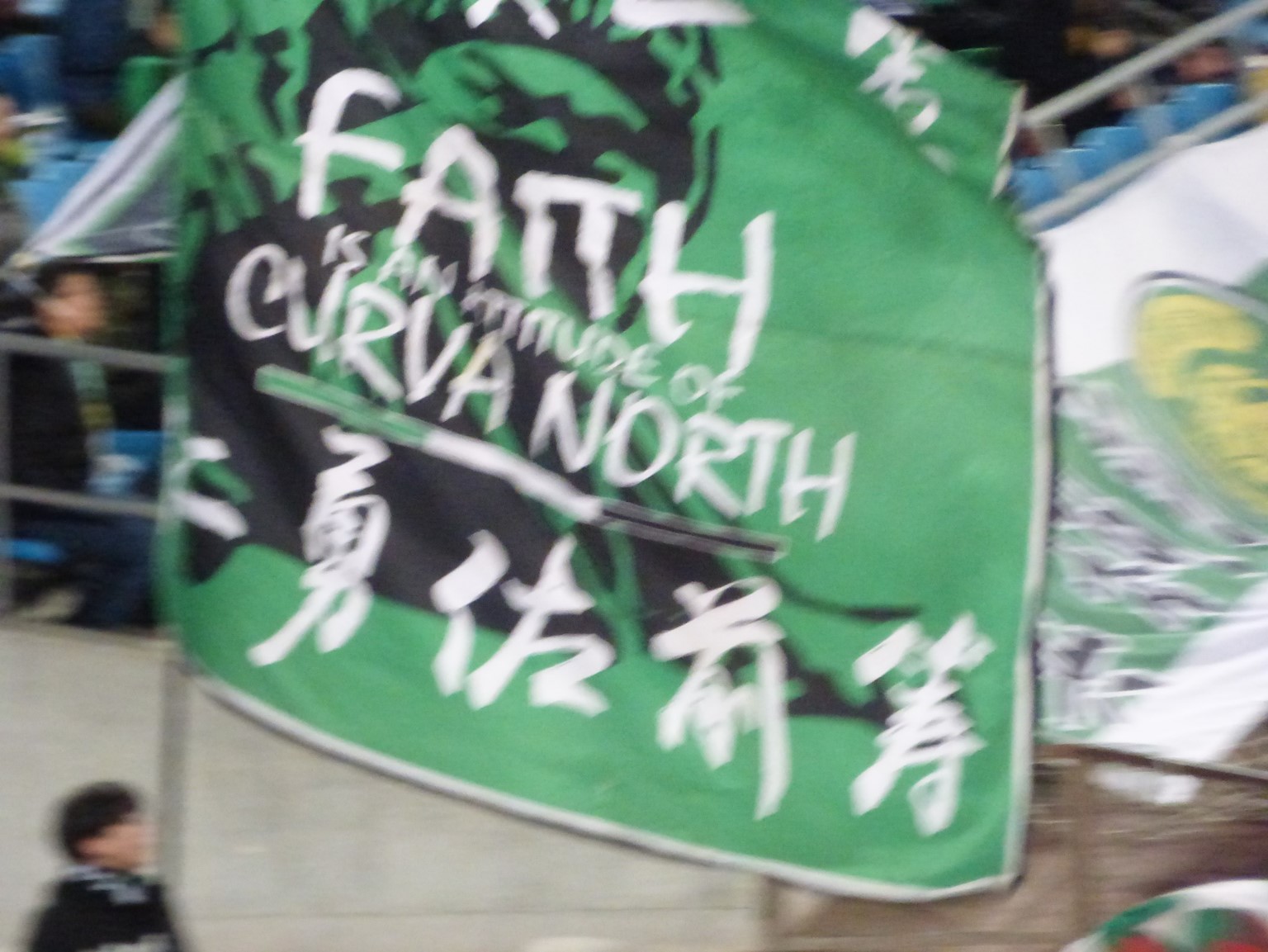
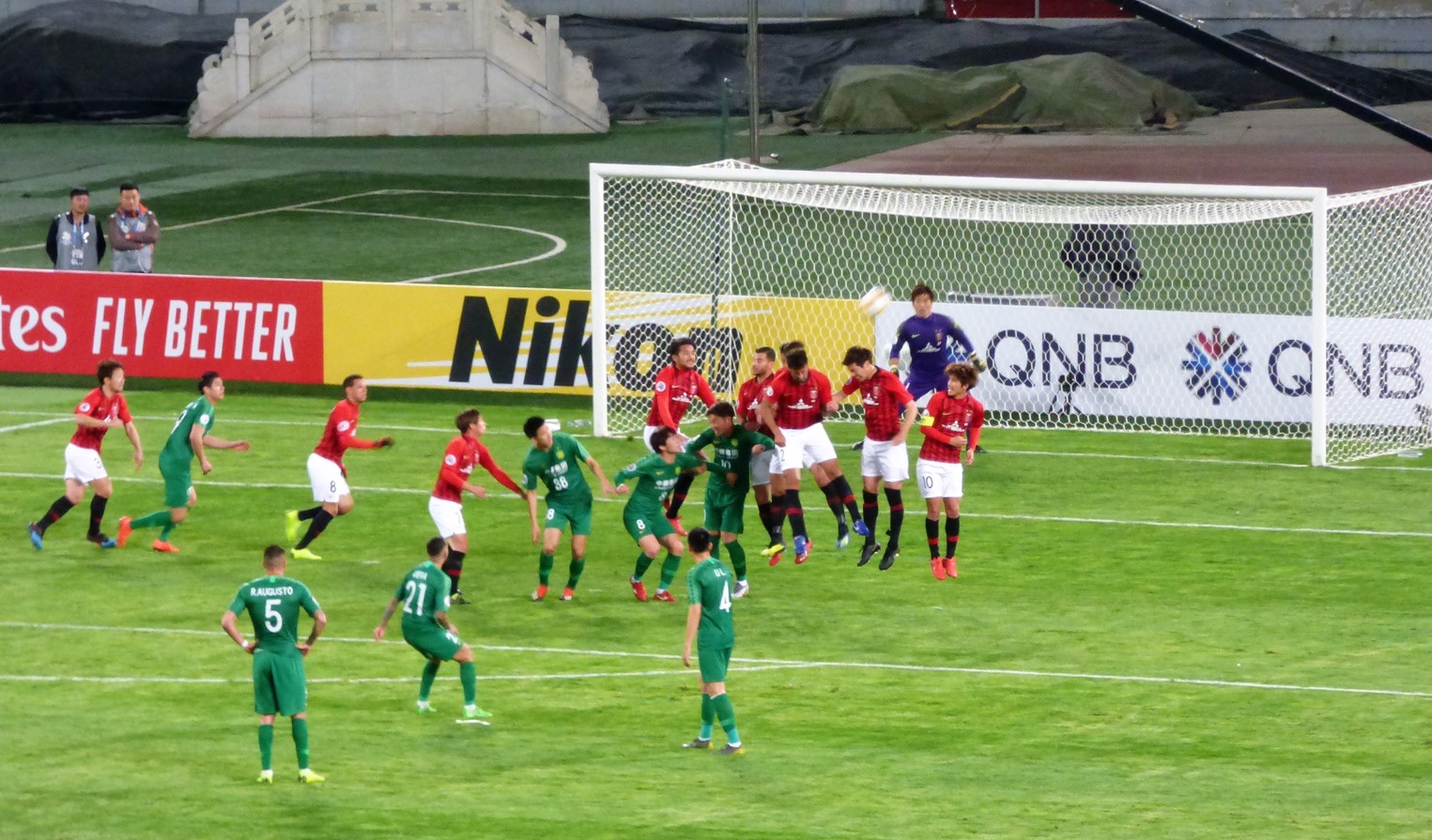
The Japanese then demonstrated their lack of intent by substituting Nabbout and falling into a 5-4-1 formation.
By this time, the home attacks, while not lacking in numbers were lacking in intensity, and it appeared as if tiredness had set in. They also lacked vision to try different things, repeating the free kick routine where three players stood a yard in front of the defensive wall and consistently playing corners to a deep position outside the area where the ball would be lobbed into a position where the keeper or defence could easily clear.
Changes were needed but were not forthcoming. The home substitutes probably completed more miles than anyone on the field, with lengthy and regimented warm ups in both halves, but only one was used – coming on as a late forward substitution
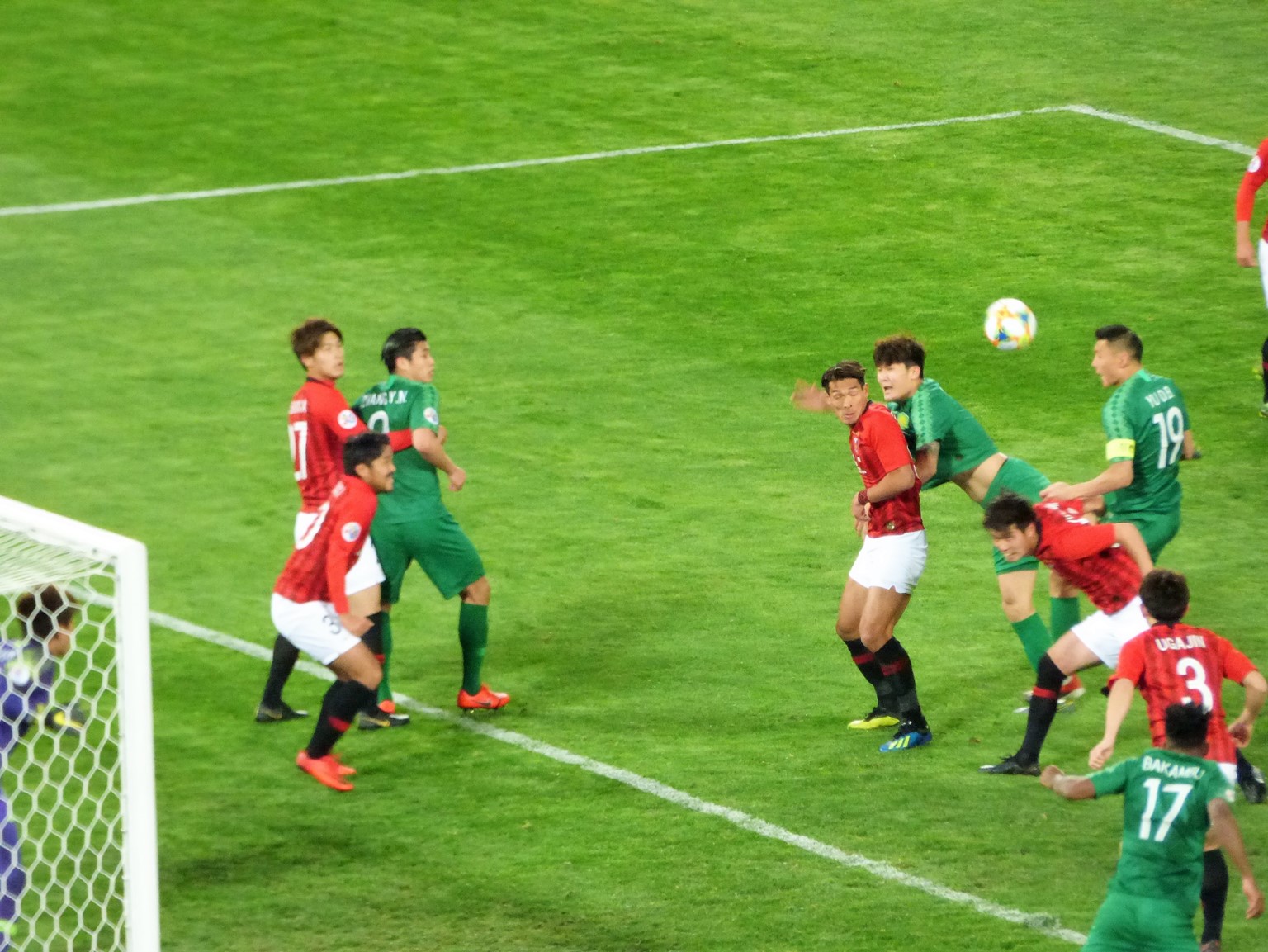
One wonders if the team struggles to consider a substitution policy as a way of changing a game, forced as they often are to play their reserves in order to fulfil the regulations on U-23 players in Chinese League games. Or is it just a lack of quality in depth in the squad.
So, at the end, the visiting team held out to get the point they had come for, which added to the three from their home game against Buriram last week sets them to the top of the group. In Thailand, Buriram United managed a 1-0 win over the South Koreans, Jeonbuk. Jeonbuk had defeated Guo’an, so the pair are both on three points. Guo’an now face two games against the Thai champions, and clearly require a better return than they have managed so far if they are to have a chance of progressing
